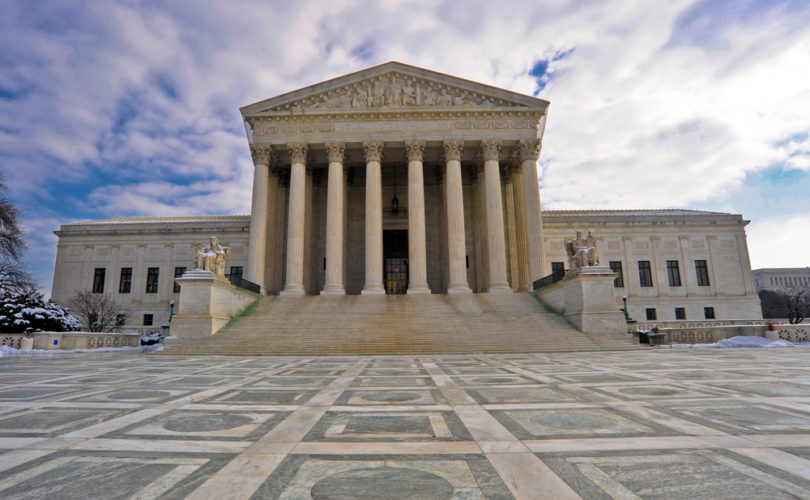WASHINGTON, D.C., November 21, 2017 (LifeSiteNews) — While the U.S. Senate continues to lag behind in confirming judicial nominations, President Donald Trump keeps his campaign promises by offering candidates for the U.S. Supreme Court that pro-lifers say are outstanding.
On Friday, the Trump administration announced five new candidates for the Supreme Court, considered the “short list” of 25 possible high court justices.
“These five judges are exceptionally qualified and any one of them would make an outstanding Supreme Court justice,” Susan B. Anthony List president Marjorie Dannenfelser said. “President Trump set a high standard with Justice Neil Gorsuch and continues to impress with his excellent list of nominees for future vacancies.”
“President Trump continues to keep his promise to nominate only judges who are loyal to the Constitution, not to an activist pro-abortion agenda,” Dannenfelser added.
Carrie Severino, Judicial Crisis Network’s chief counsel and policy director, called all five as “the best and brightest judges in the nation.”
“These men and women have spent years in the trenches of state and federal government fighting for the Constitution and the rule of law,” Severino said. “They represent a diverse range of backgrounds, including state and federal judges, three who were former state solicitors general with firsthand experience protecting our constitutional balance of powers.”
With the confirmation of Gorsuch, the Supreme Court is fully stocked, but three of the nine justices are 79 years old or older. Liberals Ruth Bader Ginsburg is 84, Anthony Kennedy is 81, and Stephen Breyer is 79.
Pro-lifers hope that when one of the three steps down, a Trump conservative swings the court away from the last 45 years of judicial activism, apparent in such unilateral decisions as the legalization of abortion, sodomy, and same-sex “marriage.”
Judge Amy Coney Barrett, 45, is on the U.S. Court of Appeals for the Seventh Circuit. She has a law degree from Notre Dame and experience clerking for former Supreme Court Justice Antonin Scalia. She also spent 15 years teaching at Notre Dame Law School, where she twice received the Distinguished Professor of the Year award. Her expertise in constitutional law and statutory interpretation was published in the Columbia Law Review, the Virginia Law Review, and the Texas Law Review. In her confirmation hearings, Sen. Dianne Feinstein vehemently opposed her because her Christian faith “lives loudly in you.”
Judge Brett Kavanaugh, 52, is a Circuit Court Judge for the D.C. Circuit Appeals Court. He attended Yale, both for his undergrad and for his law degree. He clerked for Supreme Court Justice Anthony Kennedy. He assisted Independent Counsel Kenneth Starr as Starr investigated former President Clinton’s sex scandal with Monica Lewinsky. He also served President George W. Bush as a legal secretary. Kavanaugh is married and has two daughters.
Judge Kevin Newsom, 44, serves on the U.S. Court of Appeals for the Eleventh Circuit. Harvard Law School is his alma mater. He clerked for U.S. Supreme Court Judge David Souter and served as Alabama Solicitor General for four years. He is married and has two young children.
Justice Britt Grant, 39, went to Stanford, where she was managing editor of the Stanford Journal of International Law. She is currently a Georgia Supreme Court justice. She served under President George W. Bush on the Domestic Policy Council of USA Freedom Corps and was Georgia’s Solicitor General. During her tenure as Solicitor General, she joined a federal lawsuit challenging ObamaCare. She is married and has three children.
Justice Patrick Wyrick, 36, is an associate justice on the Oklahoma Supreme Court. A University of Oklahoma Law School alumnus, he served as the Oklahoma Solicitor General for eight years. As Solicitor General, Wyrick also joined the legal challenge to ObamaCare. He is married and has three children.
White House Counsel Donald McGahn said the president is determined to appoint “committed originalists” as judges, meaning that they interpret the law as originally intended and do not create law from a “flexible, organic Constitution” philosophy.

